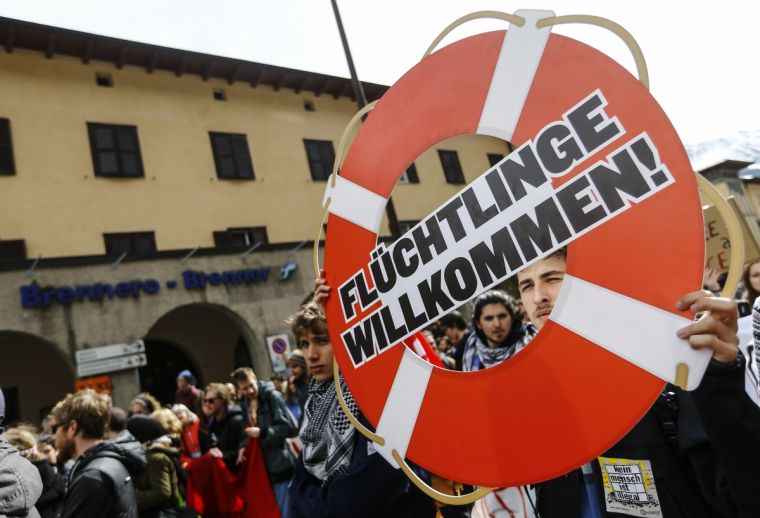Austrian bishop forbids government from building anti migrant fence on church land

An Austrian bishop has refused to allow parts of an anti-migrant fence on the Hungarian border to be built on church land.
The barrier near Moschendorf on Austria's southern border is planned to be several kilometres long and crosses two Church properties. However, the Bishop of Eisenstadt, Aegidius Zsifkokvics, is refusing permission for the fence. He said the border would "contradict the spirit of the Gospel, Pope Francis' clear message to Europe, and in particular for a diocese that was in the shadow of the Iron Curtain for decades".
According to News 24, Zsifkokvics said: "Last year, during the worst refugee crisis of recent years when 200,000 people crossed the border at Nickelsdorf in six weeks, practically overnight we provided around 1,000 emergency places in Church buildings for exhausted families, for women, children and old and weak people.
"And now we are supposed to build a fence on Church lands?
"We need to tackle today's problems at their root and that means: stopping organised human trafficking, stopping sales of European arms, stopping war and the deliberate destabilisation of the Middle East and stopping the exploitation of African raw materials and agriculture by European firms."
Austria plans to erect several barriers to control migration, which last year saw around 900,000 people pass through the country on the way to Germany and Scandinavia.
The route through the Balkans has effectively been closed and efforts to reduce the number making the dangerous sea crossing from Turkey to Greece are also proving successful as migrants are told they will be returned to Turkey if they land in Greece.
However, progress in returning refugees from the overcrowded and insanitary Greek camps has been painfully slow and Europe's deal with Turkey has been condemned by rights organisations and by the Council of Europe.
A report for the Council by by the Dutch parliamentarian Tineke Strik said the EU-Turkey agreement "at best strains and at worst exceeds the limits of what is permissible under European and international law".
As well as the conditions in which refugees were held, it condemned Europe's "shamefully slow" progress on relocating refugees from Greece to other countries; by the end of March only 937 out of a promised 160,000 had been found homes.
A letter to the Times today from UK and US religious leaders urged Prime Minster David Cameron and President Barack Obama to use what could be their final meeting as heads of state to "urgently address the humanitarian crisis in Syria". It said: "They have both led the world in mobilising support for Syria's neighbours, which are sheltering the vast majority of those who have fled the country. We now urge Mr Obama and Mr Cameron to set out the steps to ensure that more Syrian refugees can find sanctuary outside the region."
The letter, signed by Christian bishops, Jewish rabbis and Muslim and Hindu leaders, said: "Welcoming the stranger sometimes takes courage, but the joys and the hopes of doing so outweigh the challenges."
Britain has said it will take a further 3,000 refugees, mainly vulnerable children, from the Syria region by 2020 in addition to the 20,000 places already promised. The scheme will target unaccompanied children in the Middle East and North Africa. There are an estimated 4.5 million Syrian refugees across the region, more than half of them children.
However, the Government's move was described as a "cynical ploy" by Lib Dem leader Tim Farron, who told the BBC it was an attempt to "buy off" Conservative backbenchers ahead of a Commons vote on the issue of unaccompanied children in the camps next week.
Around 30,000 unaccompanied children are in camps in Europe. Farron said 10,000 had "gone missing" and that the Prime Minister had not taken the opportunity to help them.











